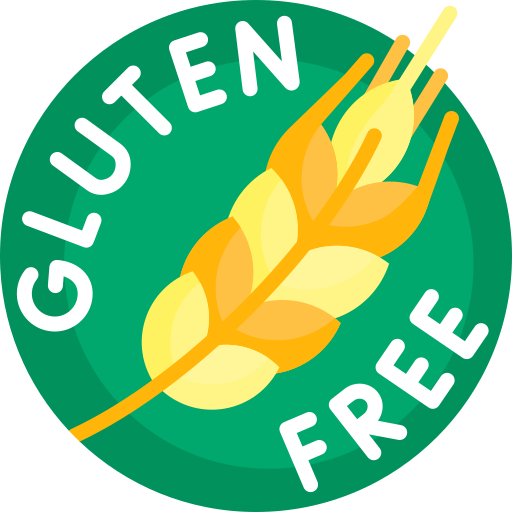In recent years, the term “gluten-free” has surged in popularity, weaving its way through dietary trends and medical advice alike. But what does embracing a gluten-free lifestyle entail? This article delves into the essence of a gluten-free diet, the medical diagnoses necessitating this approach, and the broader implications for those choosing—or requiring—a life without gluten.
Understanding Gluten and the Gluten-Free Diet
Gluten is a protein found in grains like wheat, barley, and rye, and for many, it’s a harmless component of daily nutrition. However, for others, gluten triggers adverse health reactions, ranging from mild discomfort to serious autoimmune diseases. A gluten-free diet, therefore, eliminates foods containing gluten, a change that has proven crucial for managing certain health conditions and improving quality of life for many.
Diagnoses Necessitating a Gluten-Free Diet
- Celiac Disease: This autoimmune disorder affects around 1% of the global population, where gluten consumption leads to small intestine damage, impeding nutrient absorption. The symptoms are wide-ranging, from digestive distress to neurological issues. A strict, lifelong gluten-free diet is the only known treatment, necessitating a profound understanding of gluten-free nutrition.
- Non-Celiac Gluten Sensitivity: Exhibiting symptoms akin to celiac disease but without the associated intestinal damage, this condition’s precise cause remains under investigation. Affected individuals typically benefit from a gluten-free diet, although the degree of gluten sensitivity can vary.
- Wheat Allergy: Unlike celiac disease or non-celiac gluten sensitivity, a wheat allergy triggers an allergic reaction to wheat proteins, not just gluten. This condition can provoke responses from mild to potentially fatal anaphylaxis, requiring complete avoidance of wheat products.
Celiac Disease
Understanding the genetic predisposition to celiac disease is crucial, as it often runs in families. Those with a first-degree relative diagnosed with celiac disease have a significantly higher risk of developing the condition. Beyond the immediate symptoms and nutrient absorption issues, untreated celiac disease can lead to long-term health complications, including infertility, reduced bone density, and certain cancers. Education on gluten-free nutrition is vital, as is regular follow-up care with healthcare professionals to manage the condition effectively and prevent complications.
Non-Celiac Gluten Sensitivity
The dialogue around Non-Celiac Gluten Sensitivity (NCGS) is evolving, as medical science seeks to better understand its mechanisms. Unlike celiac disease, there are no biomarkers for NCGS, making patient-reported symptoms critical for diagnosis. This condition highlights the variability of gluten intolerance among individuals, suggesting a spectrum rather than a one-size-fits-all issue. For those affected, identifying and adhering to their unique tolerance levels to gluten can significantly improve quality of life, underscoring the importance of personalized dietary planning.
Wheat Allergy
Management of wheat allergy involves vigilant avoidance of wheat in all forms, which can be challenging given its prevalence in the Western diet. Cross-reactivity with other grains can also occur, complicating dietary restrictions. For individuals with a wheat allergy, it’s essential to carry emergency medication, such as epinephrine, in case of accidental exposure leading to anaphylaxis. The condition also underscores the importance of clear food labeling and the need for individuals to become adept at recognizing less obvious sources of wheat in food products and restaurant meals.
Navigating a Gluten-Free Lifestyle
Transitioning to a gluten-free way of life entails more than skipping bread and pasta. It involves a deep dive into food labeling practices, uncovering hidden gluten sources, and making mindful nutritional choices. This journey, while daunting at first, opens up a world of dietary awareness and health benefits.
Challenges of Living Gluten-Free and Solutions
Embarking on a gluten-free diet introduces challenges, particularly in social settings or while searching for genuinely gluten-free options. Effective strategies include meticulous meal planning, educating those around you about gluten-free needs, and discovering products and establishments catering to this lifestyle.
Engaging with the Gluten-Free Community
For further guidance, connect with online forums, local support groups, or healthcare professionals specializing in gluten-related disorders. Sharing experiences and resources can significantly ease the transition to a gluten-free diet.
What’s Next?
Are you or someone you know navigating the complexities of a gluten-free diet? Whether due to celiac disease, non-celiac gluten sensitivity, or wheat allergy, understanding and adapting to this lifestyle is key. For comprehensive resources, recipes, and tips on living gluten-free, explore our website further. Your journey to a healthier, gluten-free life starts here.
